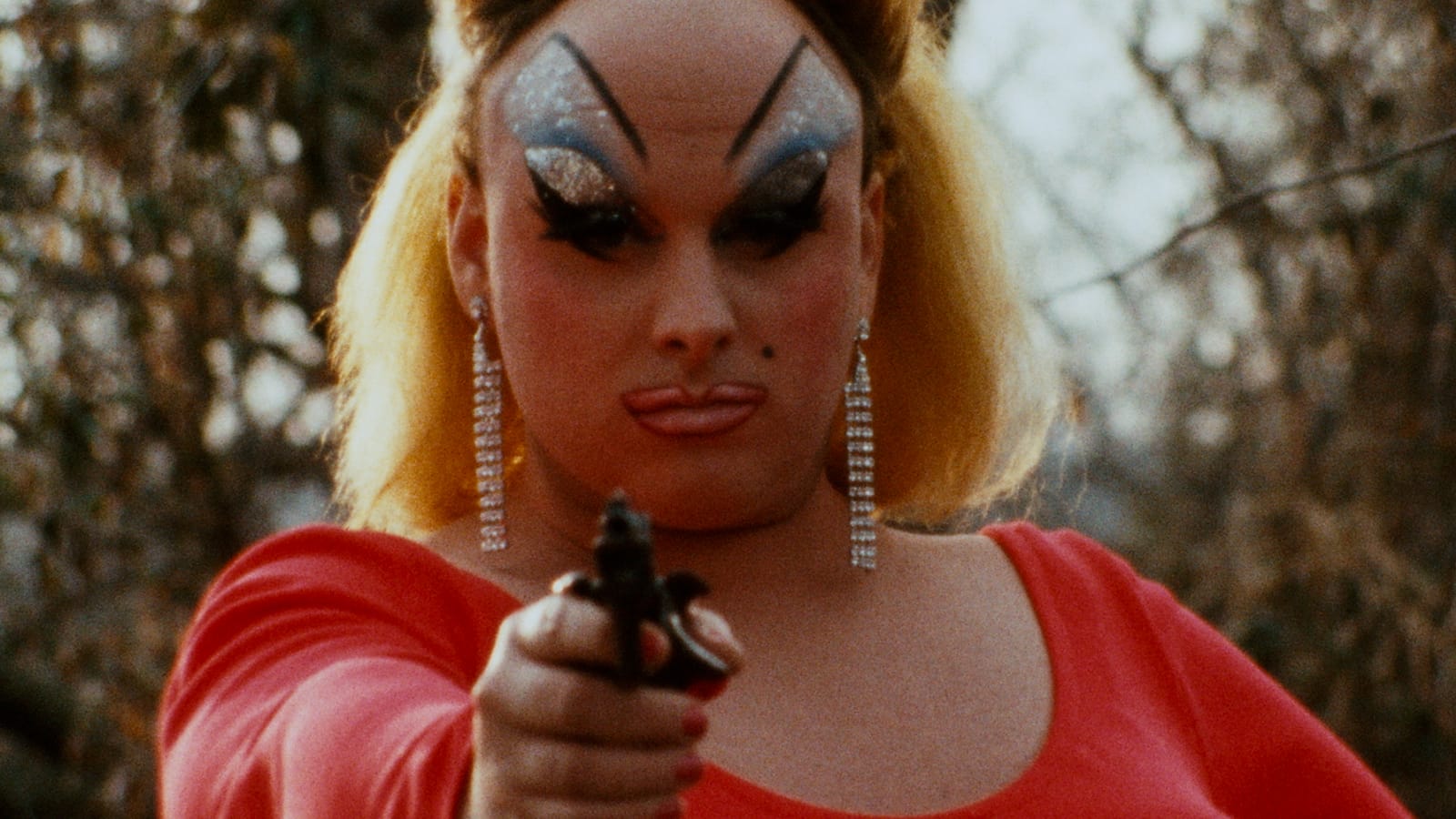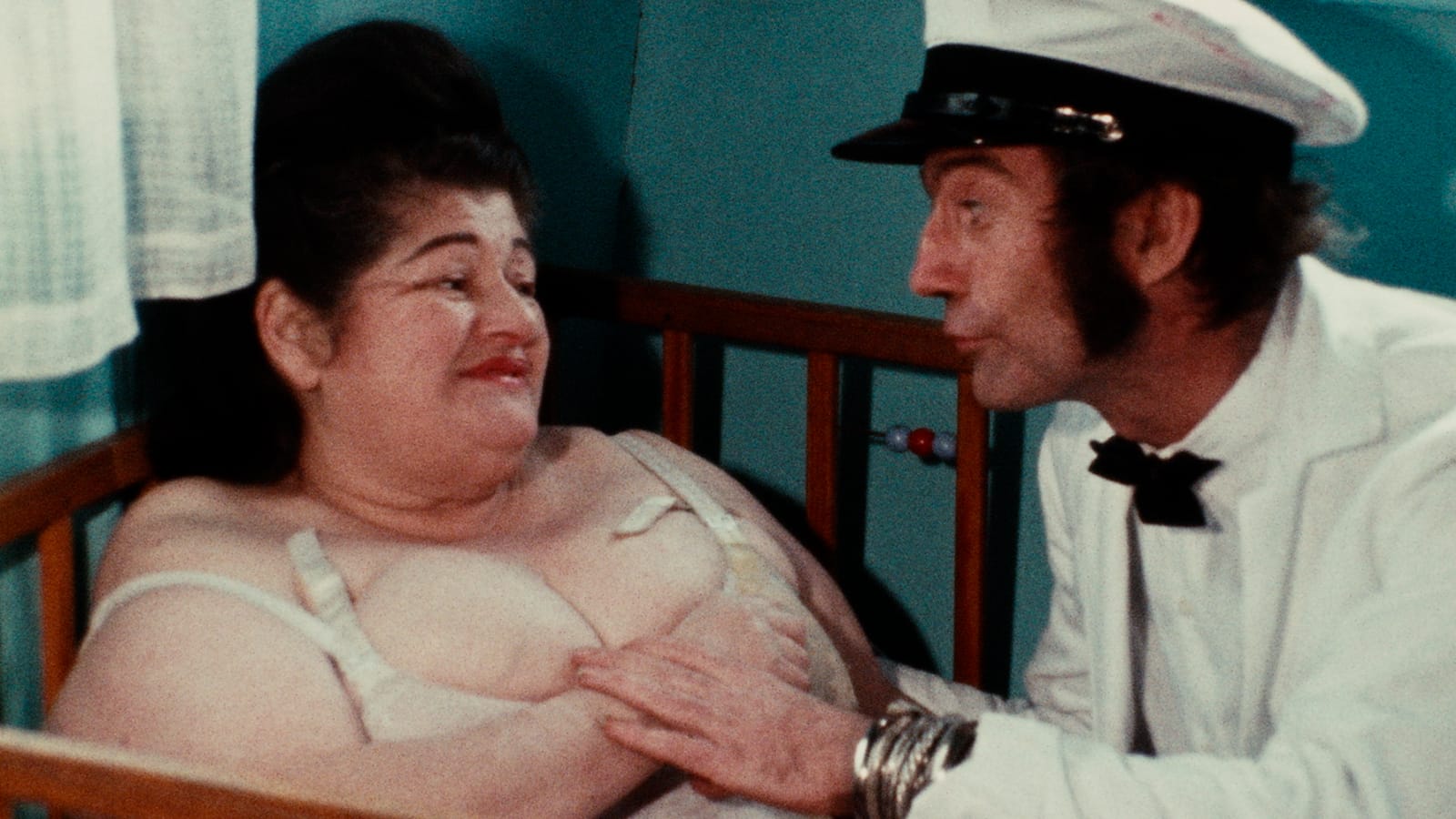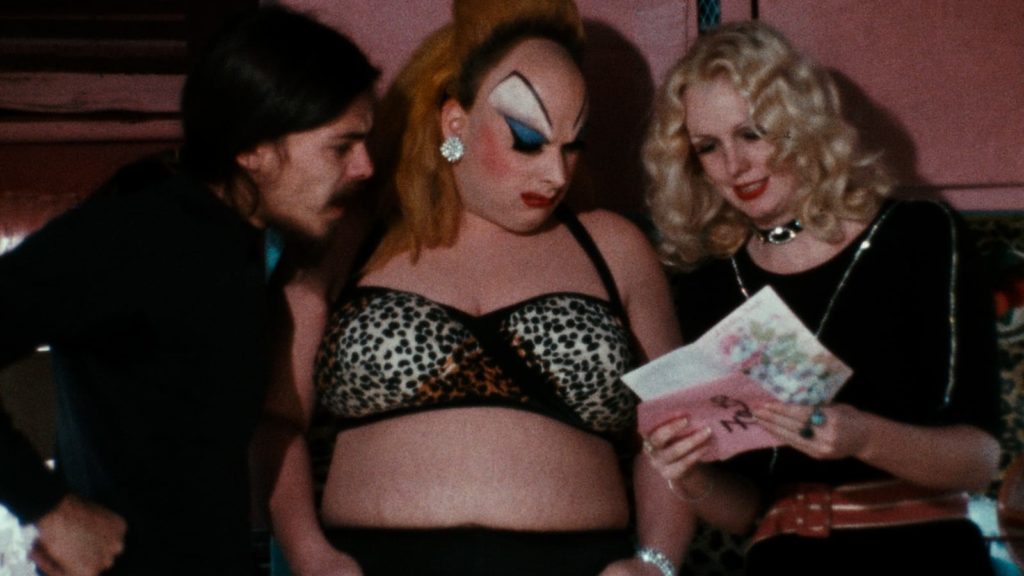
By all logic, Pink Flamingos, director John Waters’ infamous 1972 “exercise in bad taste,” should have lost some of its power by now. The internet, with its veritable firehose of unavoidable shocking content, has numbed and desensitized all but the most sheltered; people who were born the day Goatse* spread his cheeks have now graduated from college. Waters, once the stringy-haired enfant terrible of the world of underground cinema, has since been accepted fully into the mainstream, a cuddly elder-queer ambassador who can always be counted on for an outrageous bon mot. The film– which celebrated its fiftieth anniversary this past spring– is in the Criterion Collection, for crying out loud. One would think that shifting social mores would have long since rendered this midnight movie classic as shocking as a Betty Boop cartoon.
Yet Pink Flamingos remains a rite of passage, one of the few films to possess– much less retain for any length of time– an aura of actual danger. One time in college I attempted to convince some friends, who knew the film by reputation but had never seen it, to come with me to a revival screening. Begrudgingly, they relented, on the condition that I pay for dinner. I said sure, we’d go out for a big meal– after the movie. My bluff paid off: I knew full well that they wouldn’t be the least bit hungry walking out of that theater, and my wallet remained full.
I feel like I shouldn’t need to describe Pink Flamingos to a Boston Hassle audience, but in the interest of the uninitiated, the basics. Legendary drag queen Divine stars as Babs Johnson, the self-proclaimed “Filthiest Person Alive,” who lives in a trailer in the woods with her mother, Edie (beloved found-object actress Edith Massey), who spends the entire film in a playpen covered in eggs; deranged son Crackers (Danny Mills) who has, uh, adventurous taste in chicken; and lover Cotton (Mary Vivian Pearce). Babs’ title is challenged by Connie and Raymond Marble (Mink Stole and David Lochary), a pair of neon-haired suburbanites who run a black-market baby ring out of their basement with the help of their butler, Channing (Channing Wilroy) and a revolving cast of abducted women. This conflict sets the stage for a series of increasingly foul one-ups, ranging from arson to furniture-licking to a party guest with a musical rectum. It all of course leads up to one of the most notorious endings in movie history, in which Divine cleans up after a dog in the most disgusting way possible.

Like Cannibal Holocaust (one of those other rare cult films which well and truly lives up– or down– to its reputation), part of the forbidding mystique of Pink Flamingos lies in its quasi-documentary nature. Waters didn’t have much in the way of a special effects budget, meaning that all of the upsetting acts on screen are actually performed by his cast: genitals are manipulated, drugs are consumed, and, yes, dog shit is masticated. This, combined with the grainy 16mm photography and occasionally amateurish acting, gives the proceedings the air of a snuff film, as if the Manson Family decided to try their hand at comedy filmmaking instead of mass murder (this stylistic homage is surely intentional; Waters famously traveled across the country to sit in the gallery of the Manson trial, and the film is peppered with gleeful references to Susan Atkins and Tex Watson). Even a half century removed from its release, one still gets the feeling that they’re watching something that they shouldn’t be.
Putting a “trigger warning” on a film like Pink Flamingos seems redundant, but I do feel like I should mention that the material here is in no way, shape, or form for the squeamish, and a number of scenes are probably even less acceptable now than when they were shot; though played for laughs, there are scenes of sexual assault which are graphic and genuinely upsetting, and a scene in which a chicken meets an untimely end probably constitutes animal cruelty (in a program of deleted scenes tacked on as an addendum to the film’s 25th anniversary rerelease in the ‘90s, Waters justifies the scene by showing that the cast ultimately cooked and ate the chicken on camera). Waters has compared walkouts at his early films to standing ovations; indeed, more sensitive viewers may find themselves “applauding” the film straight out of the theater.

But there is one crucial difference between Pink Flamingos and other, similarly transgressive films: it’s watchable. There is an honest-to-god innocence to the proceedings that may come as a surprise to first-time viewers; like all of Waters’ early films, the cast and crew are made up of his friends and family, and the enthusiasm of watching all of these weirdos hamming it up and putting on a show is infectious. It also helps that it’s genuinely funny. Waters’ peculiar outlook and talent for over-the-top sloganeering has perhaps never been put to better use, and Divine truly was a once-in-a-generation comic talent. Even if it wasn’t contained in one of the most outrageous films ever made, her climactic monologue in which she espouses her worldview (“Kill everyone now! Condone first degree murder! Advocate cannibalism! Eat shit!”) would have made her the star that she ultimately became. Pink Flamingos remains strong medicine, but to a certain subset of midnight movie sicknik, it’s the definition of a comfort watch.
A postscript: as I put the finishing touches on this piece, my cat looked me straight in the eyes and threw up right in front of me. Everybody wants to be in show biz.
* – Mom and Dad, I am begging you not to google that reference.
Pink Flamingos
1972
dir. John Waters
93 min.
New digital restoration!
Screens Friday, 9/2 @ Coolidge Corner Theatre – midnight, of course!
Part of the month-long series “Midnight Movies 101”


AMEN AMEN!